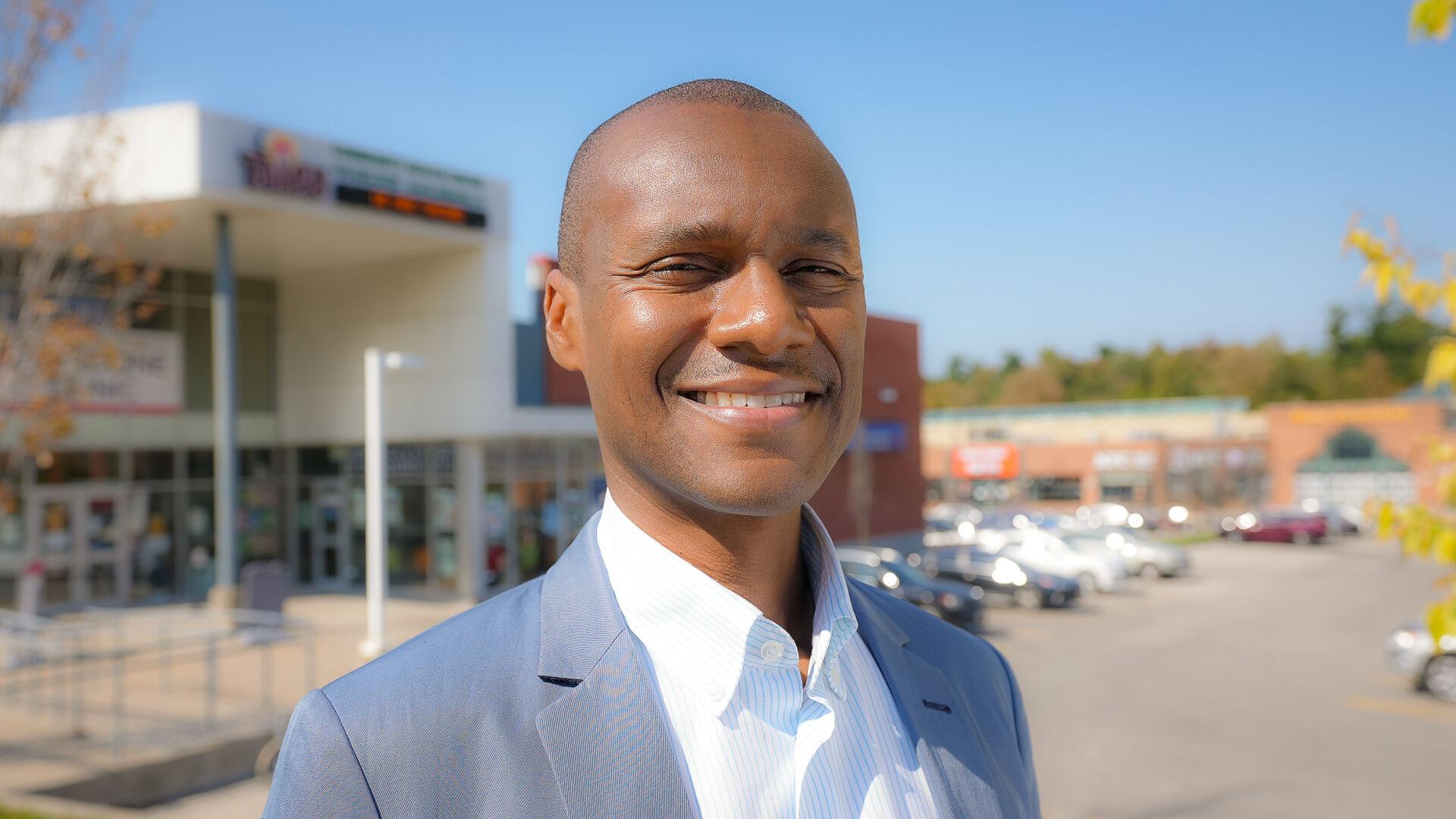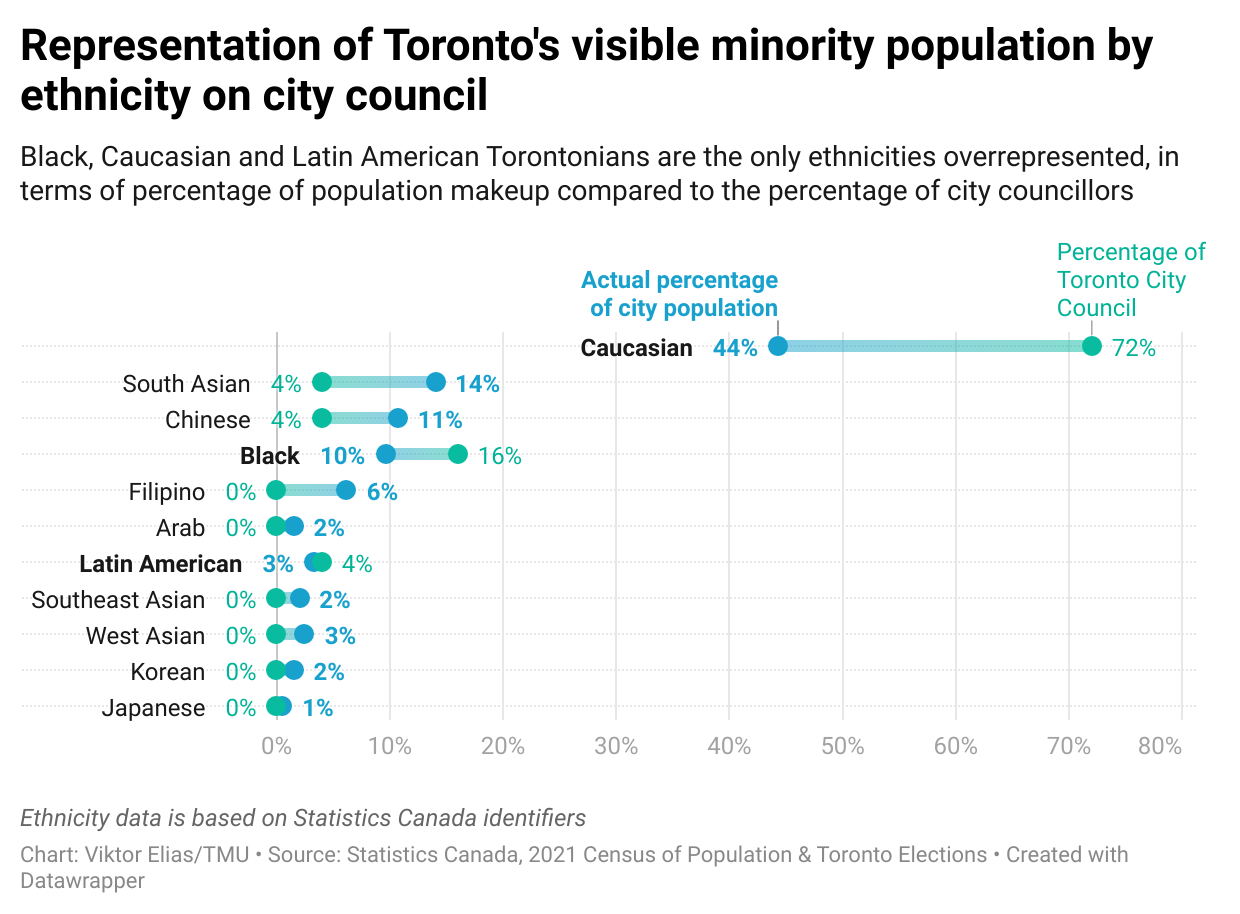
Challenges Persist Despite Increase in Diversity on Toronto City Council
Chris Moise, who was elected last month and became the first openly gay Black man to be elected to Toronto city council, remembers encouraging a single mother to run for TDSB trustee.
As a BIPOC person elected to council, Moise thinks it is important to look back and provide mentorship to those coming after him, even if they don’t believe in themselves.
“When I ran for council this time around, I supported my successor for school board — a black woman, who is a single mother working for a non-profit,” Moise said. “When I first approached her, she said, ‘Why me? I don’t think I could do this, I’m not political.'”
But Moise did not take no for an answer.
“It’s hard for people of colour to actually crack the system,” Moise said.
“Rather than advising the board, you should be part of the board and be part of the decision-making,” Moise said. “With people like myself and my predecessor, Deborah Williams, if you’re not at the table, then the voices of our community will never be heard.”
Though he’s on council now, he says it’s important that he gives context as to what that means.
“At the school board, one of the first things I did was that I had to review the policy around school resource officers in our schools,” Moise said.
The motion he put forth talked about making sure they go into a community space, such as a mosque or a community centre, and listen to people talk about their experiences with the education system around policing in their schools. Based on what they heard, a lot of Black kids were being carted or given trespass notices and threatened by the police.
“I recognize my job, as a school board trustee, not to just support 80 per cent of people who are in the system, but 100 per cent,” Moise said. “If a percentage of us are not safe, then none of us are safe.”
He says his lived experience as a gay man, a Black man, as part of a wave of candidates from visible minority communities, will bring council more into line with the diverse city it serves.
In the 2021 census, more than 55 per cent of Toronto residents identified as visible minorities. Based on my analysis, Toronto City Council now has seven councillors that identify as visible minorities, making up 28 per cent of members.

Can't see the chart above? Click here.
“Council is now actually starting to look like the people they serve, the community they serve,” Moise said. “For the longest while, we’ve never had this.”
Jamaal Myers, who was elected in Scarborough North after incumbent Cynthia Lai died suddenly, said he was humbled to be part of the wave.
Nine new councillors were elected in all, most of them visible minorities and five of them women. Myers was one of four Black candidates elected to a council that for years has only had one Black councillor, Michael Thompson in Scarborough Centre, but challenges persist when getting councillors from diverse backgrounds — not just gender or race — to run for council.
“I think we have to think of diversity beyond just race and sex and look at the sort of totality of people’s experiences,” Myers said. “I think I’m the only councillor from Scarborough who takes the TTC as a main mode of transportation."
Myers grew up in public housing. Before entering politics, he worked as a corporate lawyer.
His prior experience “plays a role in the ways I view different things we can actually do to remove barriers,” he said. “I think we really have to have people involved in their community.”
Myers said money remains a barrier for people like him who had never run for political office before since a large network is needed to fundraise an effective campaign.
“You have to pay people, you have to buy material, you have to rent an office space, you have to pay for a website, you have to pay for data and software,” Myers said. “All of that isn’t free.”
Moise helped support Williams’s run for trustee, in a move that also included fundraising.
“One of the promises I made to her was that I would actually help her fundraise most of the money that she used for the campaign,” Moise said. “I didn’t just talk the talk.”
Amira Elghawaby, who is a columnist at the Toronto Star and has written about the topic frequently, said it should not be incumbent on racialized people to increase diversity.
“You wouldn’t want to add to their work plate, all their work plans,” Elghawaby said. “It’s an additional sort of responsibility to encourage more people from their communities to participate."
Elghawaby says part of the solution is government-based.
“The City of Toronto has several programs where they bring in people from diverse backgrounds and place them in the offices of city councillors,” Elghawaby said. “This is one way to create fellowships and internships and opportunities, so people can start to imagine themselves in these institutions.”
Former NDP MP Peggy Nash, a distinguished visiting professor at Toronto Metropolitan University, said getting women, in particular, to run for political office relies upon supporting them well in advance of an election.
“Recruiting greater diversity starts well in advance of an election because you actually often have to speak to a woman multiple times,” Nash said. “You have to ask them multiple times before they agree to run, that certainly was my situation; I didn’t jump at it the very first time.”